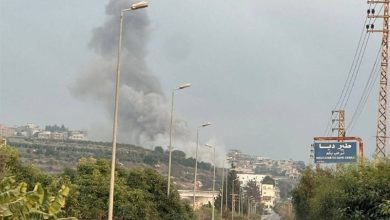Al-Aqsa Storm: Embracing a War That Was Inevitable
Contrary to views that consider the “Al-Aqsa Storm” operation a miscalculation, evidence shows that even without it, a war between the Zionist regime and the Axis of Resistance was inevitable. In fact, Al-Aqsa Storm was a preemptive move aimed at changing the balance of power on the ground.

According to the Sedaye Sama News Agency, As the second anniversary of the Al-Aqsa Storm operation arrives, analyses of its objectives and consequences have once again become the focus of political and military observers. The key question remains whether the operation ultimately benefited Palestine and the Axis of Resistance, given that after two years of war, over 70,000 Gazans have been martyred, more than 200,000 injured, and over 90% of the Strip destroyed, with large areas under Israeli occupation.
During this period, Hezbollah, which entered the conflict in support of Hamas, faced the heaviest Israeli attacks, culminating in September 2024 with the martyrdom of its Secretary General, Sayyed Hassan Nasrallah. Some critics even attribute the fall of Bashar al-Assad’s government in December 2024 to the indirect repercussions of the Al-Aqsa Storm operation. However, the notion that the operation was a strategic miscalculation can be challenged from two main perspectives.
First, the Al-Aqsa Storm was a reaction to the accelerating normalization between the Zionist regime and several Arab states, particularly Saudi Arabia. Under severe economic and military pressure, Hamas decided to take a preemptive step to avoid a slow political death and to bring the Palestinian issue back to the forefront of global attention. Despite knowing the severe consequences, Hamas boldly launched the operation, shifting regional dynamics and restoring Palestine to the center of international discourse.
The operation triggered widespread global solidarity, as streets across the world—from North America to East Asia—filled with protests supporting the Palestinian people. Even several European governments, once traditional allies of Israel, officially recognized the State of Palestine for the first time, marking a major political achievement in breaking Palestine’s isolation.
From a second perspective, Al-Aqsa Storm was not merely symbolic or suicidal—it was a preemptive action against Israel’s planned military and intelligence operations. Reports from Hebrew media revealed that Israel had been preparing for months to simultaneously assassinate Hamas leaders in Gaza and Hezbollah commanders in Lebanon.
According to a documentary aired on Israel’s Channel 12, Israeli security forces had entered Lebanese territory at least a month before the operation and were planning a massive assault for September 2023. Thus, even without Hamas’ initiative, Israel was already on the verge of launching a comprehensive war against the Axis of Resistance.
In reality, the Al-Aqsa Storm prevented the Axis of Resistance from being caught off guard and allowed it to seize the initiative on the battlefield. Instead of absorbing a surprise attack, the resistance dictated the terms of engagement and disrupted Israel’s security calculations.
It must also be noted that the conflict between the Axis of Resistance and Israel had begun years earlier; Al-Aqsa Storm merely ignited a hidden war into an open and full-scale confrontation. Despite the heavy losses, the resistance managed to inflict unprecedented human and material costs on Israel.
Had the Al-Aqsa Storm not occurred, the Axis of Resistance would likely have suffered devastating blows in total surprise. Now, two years later, despite widespread destruction, the resistance remains steadfast and continues its struggle against the Zionist regime.
Most importantly, the war has shattered Israel’s long-standing sense of strategic security and plunged it into a multifaceted crisis—military, political, psychological, and moral. Al-Aqsa Storm thus stands as a defining turning point in the modern history of the region, permanently reshaping the rules of the game.







